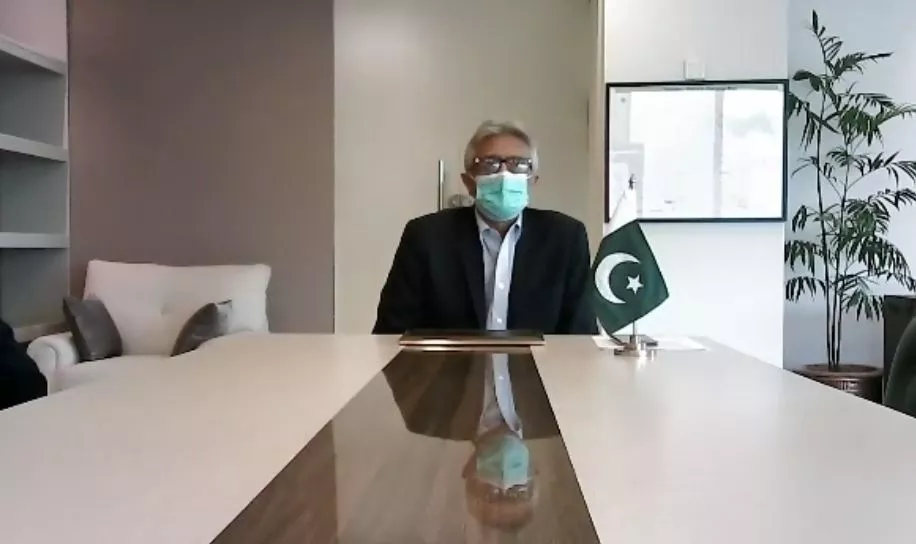'Pakistan committed to containing coronavirus outbreak', Dr Faisal tells WHO
Says the country will also ensure that gains made in other areas so far are not impeded
KARACHI:Special Assistant to Prime Minister on National Health Services Dr Faisal Sultan on Thursday said that Pakistan was committed to containing the coronavirus outbreak while ensuring that gains made in other areas were not impeded.
Speaking during a virtual press briefing of the health ministers from the WHO Eastern Mediterranean Region (EMR), Sultan said that Pakistan was a country affected not just by Covid-19 but also by natural disasters and other emergencies.
“We are also battling polio, and our decade-long efforts to eradicate this disease are now being impacted by Covid-19, as the polio staff and resources are diverted to the pandemic response,” he said. Despite the challenges, he added, “Pakistan is committed to containing the outbreak while ensuring that gains made so far in other areas were not impeded.”
He said that there were many achievements in the country’s battle against Covid-19 since the start of the pandemic in February this year, and noted that there had been significant reduction in the transmission by July and August.
“However, like many countries around the world, easing of lockdowns resulted in a resurgence of cases in October. This required a strategic review of our response,” he said. The SAPM said Covid-19 has led the country to rethink its approach of managing points of entry (PoE) and outlined five findings.
He elaborated the findings as developing sustainable human resource capacity; prioritising investments in new quarantine infrastructure and mapping of available facilities; establishing professional training programme for PoE tailored for both health and non-health staff; restructuring and modifying physical PoE premises to reduce risk of transmission; and managing data and sharing with stakeholders.
He further said that there were well functioning multiple disease surveillance systems in Pakistan. Some outstanding achievements with case-based reporting like polio, VPD, Covid-19 and solid aggregated reporting for some vertical programme using DHIS2 like malaria, TB and HIV.
However, he stressed that it was clear that there was a need to progressively build and expand integrated programmes and geographical coverage with governance implementation and resource management, data convergence, strengthening key technical aspects and ensuring quality assurance.
The SAPM said that Pakistan was heavily dependent on its experience acquired on the social and digital media platforms, as well as local community-based workers that also included listening tools used for rumour management and two-way communication with communities.
“There are, however, limited resources and seasoned expertise dedicated to risk communication at federal and provincial levels, the capacity-building lacks integration and need for consolidating all monitoring and evaluation mechanisms, and this is an area we are working on to build together with partners,” he added.
Dr Sultan stressed the need for a rapid review “on what worked well and what needs to be improved” for planning a more effective response to the pandemic. However, he underscored that the response should not let the planners forget the need for continuing essential health care services.


COMMENTS
Comments are moderated and generally will be posted if they are on-topic and not abusive.
For more information, please see our Comments FAQ